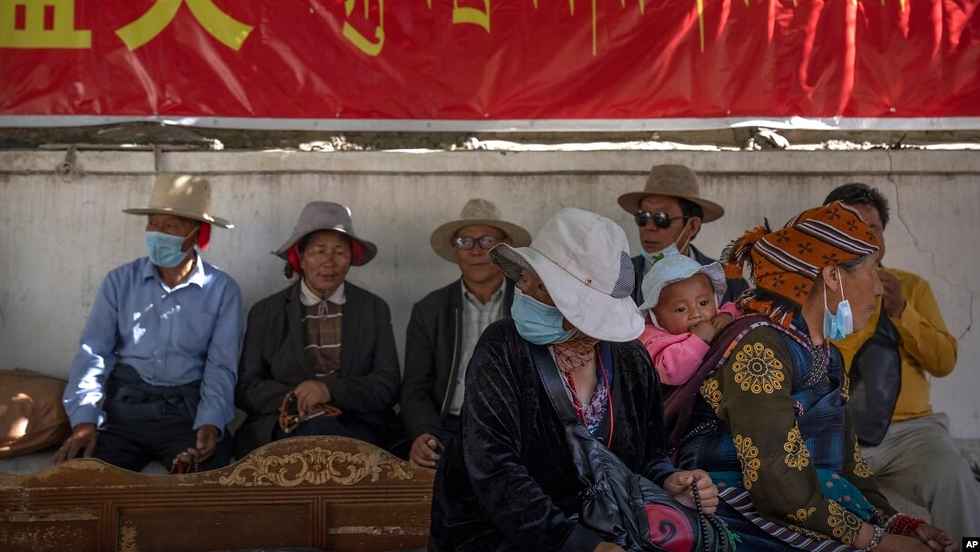China Forcibly Relocates Rural Tibetans to Urban Areas
- Human Rights Research Center
- May 24, 2024
- 2 min read
May 24, 2024
FILE - People rest in the shade under a government propaganda banner in Chinese and Tibetan in Lhasa, in China's Tibet Autonomous Region, on June 3, 2021. In a report released on May 22, 2024, Human Rights Watch says China is increasingly forcing rural Tibetans to move to cities.
Cited article by VOA News
HRRC advocates for the immediate cessation of forced relocations, demands an end to coercive assimilation practices, and calls for accountability for the Chinese government's violations of Tibetan human rights.
News Brief
Human Rights Watch reports that China has intensified the forced relocation of Tibetan villagers and herders under the guise of "poverty alleviation" and environmental protection since 2016. Despite Chinese authorities claiming these relocations are voluntary, the report cites over 1,000 Chinese state media sources and government publications indicating that participation is effectively compulsory. The relocations, affecting more than 930,000 Tibetans since 2000, with 76% occurring since 2016, often involve coercive measures, including threats and cutting essential services to ensure compliance. These actions have significantly disrupted the traditional lifestyles of Tibetans, forcing them to move far from their homes and undermining their cultural and linguistic heritage.
The relocations are part of a broader strategy by the Chinese government to assimilate Tibetans into the majority Han Chinese society, as noted by Maya Wang, interim director at Human Rights Watch. The program has led to significant discontent among relocated Tibetans, many of whom struggle to find employment and adapt to their new environments. Despite the Chinese government's claims that these relocations are aimed at poverty alleviation, surveys show low satisfaction among relocated individuals who often cannot find suitable jobs. Human Rights Watch and other experts argue that the involuntary nature of these relocations violates international human rights laws and threatens to erase Tibetan identity, with activists expressing concerns over the long-term impact on Tibetan culture and community cohesion.




